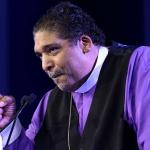The war for liberty against the British created a battle-tested cohort of African American and White faith-based leaders who developed an ardor for extending freedom.
The African American slaves in Harlem gained important allies in the form of John Jay and Alexander Hamilton. After the war, Jay wrote The Federalist Papers with Hamilton and James Madison to promote the passage of the U.S. Constitution. Jay was also long sympathetic to slaves and famously said, “Real Christians will abstain from violating the rights of others.” Hamilton, the aide-de-camp to General George Washington, was very sympathetic, because he himself was perhaps the son of a part-Black mother in the West Indies. Later, W.E.B. DuBois would claim him as “our own Hamilton.” In his biography of Hamilton Ron Chernow observed that Hamilton, except for a stretch of disillusionment after the Revolutionary war, was a quite religious Presbyterian, even writing several hymns, and that his beliefs underlay an ardent abolitionism.
Jay asked Hamilton and other allies to help create the African Manumission Society in 1785 for the purpose of educating Africans and gaining their freedom. The Society then founded the African Free School in 1787. As governor of New York in 1799, Jay presided over passage of legislation that abolished slavery by its gradual phasing out in the state.
Read the rest here















